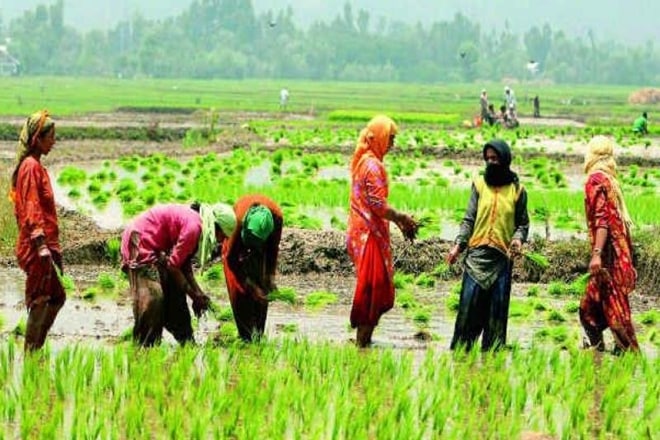Early market trends as the kharif 2018 crop has started arriving confirm the fears that the price support schemes unveiled by the central government could cost the exchequer much more than conservative estimates and outlays.

According to data gathered by FE, farmers in Gulbarga, Karnataka, are now selling their fresh harvest of moong crop at 33-35% below the minimum support price (MSP). New tur crop in the state is also beginning to be sold at considerably below the MSP, market sources told FE.
In Maharashtra too, mandi prices of moong are ruling at 32% below the MSP. Fresh tur prices in the state are also starting to get sold at considerably below MSP.
The moong MSP for kharif 2018 is fixed at Rs 6,975 per quintal, up 25% from the year-ago level.
Rolling out a package — PM-AASHA — of price deficiency support schemes for agriculture crops, the government recently announced an extra Budget outlay of Rs 15,000 crore for procurement of non-National Food Security Act (NFSA) crops during the June 2018-July 2019 crop year.
It also enhanced the government guarantee for Nafed to undertake procurement of pulses and oilseeds by Rs 16,550 crore to Rs 45,450 crore this fiscal.
This is even as an Icrier estimate put the cost of the policy of ensuring at least 50% return over cost (A2+FL) to farmers as many as 20 crops (paddy, wheat and sugarcane excluded) at Rs 1.13 lakh crore, assuming the market prices are lower than the MSP by 20%; the figure was Rs 56,518 crore if the difference was 10% and Rs 1.7 lakh crore if the gap was was 30%. The Icrier analysis, however, was based on the assumption that only the marketable surpluses get MSPs, an assumption that may not hold as assured MSPs could practically bring the entire produce to the market.
According to the official ‘Agmarknet’ data, 17,802 tonnes of moong (green gram) has arrived in 16 districts of Karnataka during September 1-14, out of which maximum quantity of 8,972 tonnes have been reported from Gulbarga district alone. The average moong price in major mandis in the district was Rs 4,633 per quintal against the MSP of Rs 6,975 a quintal.
“We have started procuring the moong crop at MSP through Nafed. Tur crop will start arriving towards end of next month. We will definitely approach the Centre if prices rule below the MSP,” said Karnataka’s agriculture secretary M Maheshwar Rao. He said the state is closely monitoring the crop prices and will take necessary measures to ensure MSP.
Official data show that 10,868 tonnes of moong arrived at different mandis across Maharashtra during September 1-14, out of which 5,804 tonnes of arrival was recorded in Akola, Amravati and Jalna districts. The average market price in top three mandis in these districts was about Rs 4,765 a quintal so far this month.
The fresh moong crop started arriving about a month back, said Madan Lal Goenka of Yogeshwarai Brokers at Murtizapur mandi in Akola district of Maharashtra. “There was no reason to increase the MSP to such a high level over the years. The government hasn’t started procurement so far and it may turn out that by the time it enters the market, the farmers may have sold out almost the entire quantity,” he said. Currently, the best quality moong is selling at about Rs 5,200 a quintal while lower grades are available from Rs 4,200 a quintal in the local mandi, Goenka said.
As the kharif harvest normally picks up from October, some early-sown crops arrive in September and many farmers do not get the benefit of price support scheme for selling their crops before commencement of the government’s procurement programme.
“We have allowed Karnataka to procure the moong at MSP after the state requested for it. We will definitely consider if any request for tur crop procurement comes from the state,” said Union agriculture secretary SK Pattanayak. He said the government is expecting an expenditure of about Rs 7,600 crore this fiscal to implement the three schemes under the PM-ASHA. “This will cover storage costs, interest payment and losses of the procurement agencies,” he said.
-Prabhudatta Misra

